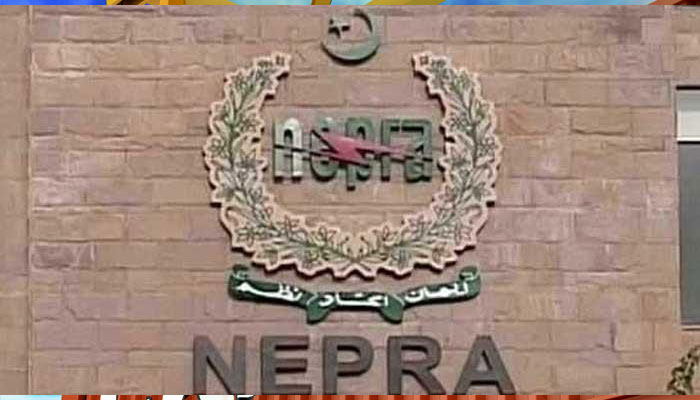Residential consumers add 120MW to grid: Nepra
ISLAMABAD: Pakistan’s residential electricity consumers have installed 120 megawatts of solar power generation capacity since the launch of net metering regulations, a senior official said on Saturday.
National Electric Power Regulatory Authority (Nepra) Chairman Tauseef Farooqi said consumers have been provided with an opportunity to become the producers of electricity. “Nepra is paving the way for clean energy and establishing a liberalised power market for its consumers,” Farooqi said during the launch of ‘Barriers and Drivers of Solar Prosumage: A Case Study of Pakistan’.
The case study by the Institute of Policy Studies prepared last year said the cumbersome procedure makes it quite challenging to get the generation licence, while power distribution companies continued to be reluctant towards distributed generation growth owing to administrative burden of processing applications, perceived fears of revenue losses and integration challenges.
Nepra had unveiled net metering regulations in 2015, letting consumers to share surplus solar electricity with the grid, known as distributed generation.
“Distributed generation remains to be a key focus area for Nepra to satisfy the ever-increasing electricity demand,” said Farooqi. “Nepra envisions greening the power sector by promoting renewable power generation according to the government's goals and objectives. Net-metering is one of the most effective instruments that triggered the renewable power market development – particularly for the solar PV [photo-voltaic] market at the grass-root level.”
Nepra chairman said distributed generation through net-metering is one of the most effective tools to enable renewable power generation at the grass-root level and is one of the key focus areas of Nepra for meeting increased electricity demands sustainably.
“Nepra will look into and try to benefit from the recommendations provided in the study while continuing its efforts to improve the regulatory environment for the promotion of net-metering in Pakistan,” he said. Challenges at inter-connection phase identified as the dominant challenge to PV system development include time lapse in acquiring of three-phase metering equipment at the initial stage, absence of online facility for applications, unavailability of bi-directional meters, and unnecessary delay in processing of the applications at every stage.
The speakers highlighted the importance of promoting clean energy through cheap renewable energy resources, while emphasising the need of increased use of solar power to curb the problems in the energy sector.
The experts assessed barriers hindering the solar energy uptake in the country, whereas consent was developed to cater these barriers through mutual efforts and promote renewable energy targets set in Alternative and Renewable Energy (ARE) Policy 2019.
Under the policy, the government intends to have 20 percent of power generation capacity as ARE technologies by 2025 and 30 percent by 2030. Such targets can be achieved but will require upgrade of the transmission infrastructure. This target, together with over 30 percent hydropower, will result in one of the most environmentally friendly and affordable electricity mix compared to the heavily dominated mix of imported fossil fuels in the past.
-
 Chyler Leigh Pays Moving Homage To 'Grey’s Anatomy' Co-star Eric Dane: 'He Was Amazing'
Chyler Leigh Pays Moving Homage To 'Grey’s Anatomy' Co-star Eric Dane: 'He Was Amazing' -
 Did You Know Tech CEOs Limit Screen Time For Their Own Kids?
Did You Know Tech CEOs Limit Screen Time For Their Own Kids? -
 Matthew Lillard Admits Fashion Trends Are Not His 'forte'
Matthew Lillard Admits Fashion Trends Are Not His 'forte' -
 SpaceX Launches Another Batch Of Satellites From Cape Canaveral During Late-night Mission On Saturday
SpaceX Launches Another Batch Of Satellites From Cape Canaveral During Late-night Mission On Saturday -
 Princess Beatrice, Eugenie Get Pulled Into Parents’ Epstein Row: ‘At Least Stop Clinging!’
Princess Beatrice, Eugenie Get Pulled Into Parents’ Epstein Row: ‘At Least Stop Clinging!’ -
 Inside Kim Kardashian's Brain Aneurysm Diagnosis
Inside Kim Kardashian's Brain Aneurysm Diagnosis -
 Farmers Turn Down Millions As AI Data Centres Target Rural Land
Farmers Turn Down Millions As AI Data Centres Target Rural Land -
 Trump Announces A Rise In Global Tariffs To 15% In Response To Court Ruling, As Trade Tensions Intensify
Trump Announces A Rise In Global Tariffs To 15% In Response To Court Ruling, As Trade Tensions Intensify -
 Chappell Roan Explains Fame's Effect On Mental Health: 'I Might Quit'
Chappell Roan Explains Fame's Effect On Mental Health: 'I Might Quit' -
 AI Processes Medical Data Faster Than Human Teams, Research Finds
AI Processes Medical Data Faster Than Human Teams, Research Finds -
 Sarah Ferguson’s Friend Exposes How She’s Been Since Andrew Mountbatten-Windsor’s Release
Sarah Ferguson’s Friend Exposes How She’s Been Since Andrew Mountbatten-Windsor’s Release -
 Jelly Roll Explains Living With 'severe Depression'
Jelly Roll Explains Living With 'severe Depression' -
 Charli XCX Applauds Dave Grohl’s 'abstract' Spin On Viral ‘Apple’ Dance
Charli XCX Applauds Dave Grohl’s 'abstract' Spin On Viral ‘Apple’ Dance -
 Anna Sawai Opens Up On Portraying Yoko Ono In Beatles Film Series
Anna Sawai Opens Up On Portraying Yoko Ono In Beatles Film Series -
 Eric Dane's Wife Rebecca Gayheart Shares Family Memories Of Late Actor After ALS Death
Eric Dane's Wife Rebecca Gayheart Shares Family Memories Of Late Actor After ALS Death -
 Palace Wants To ‘draw A Line’ Under Andrew Issue: ‘Tried And Convicted’
Palace Wants To ‘draw A Line’ Under Andrew Issue: ‘Tried And Convicted’




